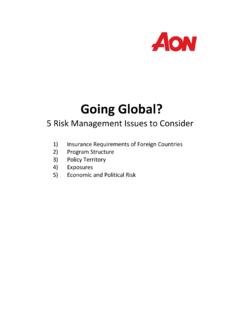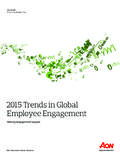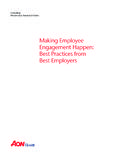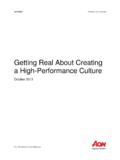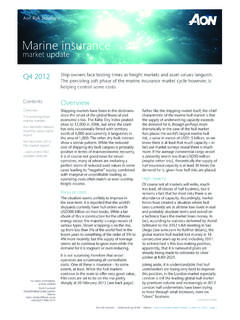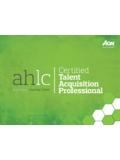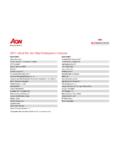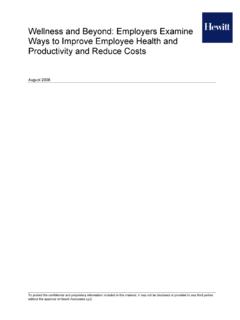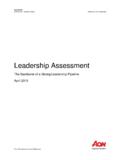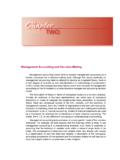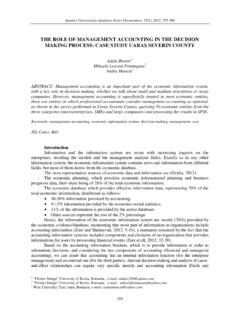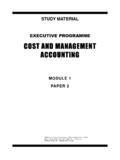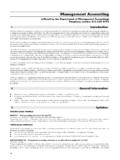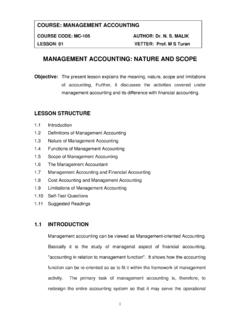Transcription of Costs, Fees and Trustee Decision-Making
1 Costs, fees and Trustee decision -MakingResearch partnership between Aon Hewitt and Leeds University Business SchoolAon HewittRetirement and InvestmentRisk. Reinsurance. Human is committed to supporting trustees to achieve the right outcomes for their pension this in mind, one of the areas we are currently focussing on is the highly topical and interesting subject of behavioural finance. Specifically, we are looking at how behavioural biases can affect the way in which defined benefit (DB) pension scheme trustees make decisions about their scheme a first step, we partnered with Behave London to develop The Aon Trustee Checklist, a practical tool designed to reduce Decision-Making bias in Trustee , we partnered with Leeds University Business School (LUBS) to undertake the first major piece of academic research exploring Trustee investment Decision-Making , including perceptions and understanding of costs and value, investment risk and return, manager selection and the role of bias in all of these Iain Clacher led the research, working with Dr Richard Edgar Hodgett, a lecturer in Business Analytics and decision Science at LUBS, and Dr Simon McNair, Leverhulme Early Career Research Fellow based at the LUBS Centre for decision Research.
2 Dr Clacher is currently Associate Professor in Accounting and Finance at Leeds University Business School and is the co-director of the Centre for Advance Studies in Finance. More information about our research partner, including team biographies, can be found on page the second half of 2016, we conducted several email and social media campaigns, inviting trustees to participate in the research. 197 responded and completed an online survey, designed by the research team. Additionally, Dr Clacher conducted 10 semi-structured interviews with representatives of a range of pension is the second in a series of reports analysing the research findings, which set out to map the Trustee landscape and provide deeper analysis on trustees perceptions of costs and value, investment risk and return as well as manager you have any questions about this research, and to pre-register for future reports, please contact one of the team. Their details can be found at the end of this report.
3 Backgrou nd*All percentage figures stated throughout are presented to the nearest integer. Aon Hewitt 3 IntroductionThis paper is the second in the series analysing trustees of UK defined benefit pension schemes and examines the extent to which trustees understand costs and fees in fund management. The results of the first paper, Mapping the Trustee Landscape1, found that trustees were highly educated, and had a range of professional qualifications. In addition, a majority of trustees exhibited a high degree of financial literacy when faced with questions on core concepts in investment and finance, such as time value of money, compounding, and inflation. However, the results of the first paper also showed that Trustee boards lacked both age and gender diversity, which may not be optimal in making decisions. Moreover, homogeneity on Trustee boards is an environment where groupthink may be present, and so an awareness of this may help to mitigate the risk of groupthink dominating second paper looks in more detail at the salience of costs and fees with respect to investment decision making , and considers both the explicit and implicit costs and fees associated with fund management.
4 The separation out of costs and fees into these groups is important in light of the interim report of the Financial Conduct Authority s Asset Management Market Study3, as one of the potential solutions to opacity in the fund management industry is increased disclosure of what many argue are the hidden costs of fund management. If this is to be the solution from the Financial Conduct Authority4, then it is crucial to understand whether trustees are in a position to actually take any enhanced disclosure and use it meaningfully when making investment decisions for the funds that they is also worth noting that any solution may have unintended consequences. For example, a full disclosure of implicit costs and fees may result in information overload and prevent effective Decision-Making . Similarly, there may be a fixation on costs over value and it is the combination of both that is crucial to effective investment in pension fund results show: Interviews with trustees highlight that investment strategy is their primary concern with costs and fees being a second order consideration; Almost half of trustees choose active over passive management; Trustees have a longer-term focus; The influence of investment consultant recommendation was not as strong as expected; Trustees are generally good at understanding explicit net of fees analyses, although trustees of smaller schemes did not perform as well; Trustees in general are less familiar with implicit fees , and this is worse for trustees of small schemes; All trustees, and especially the trustees of smaller schemes, will need to be better supported in a world where the implicit costs of fund management are part of the Decision-Making criteria for trustees.
5 1 2 When we separate costs and fees into explicit costs this refers to the Total Expense Ratio while implicit costs and fees refers to other costs associated with fund management such as custodian fees , exchange fees , bid-ask spread etc. 3 4 It is worth noting that the FCA has proposed a single all in figure, which may only add to opacity of costs and fees so while a larger fee is visible, what drives this fee may not be understood. Dr Iain Clacher, Leeds University Business School Associate Professor in Accounting and Finance Deputy Director of the Centre for Advanced Studies in Finance (CASIF) +44 (0)113 343 6860 Costs, fees and Trustee decision -MakingAs part of the investigation into Trustee decision making , a number of trustees from a range of different pension schemes were interviewed to gain perspectives across a range of issues, including the role of costs and fees in investment management. Specifically, trustees were asked How important do you see costs and fees being in your investment Decision-Making , and what sort of discussions do you have around this?
6 Below is a range of responses that are reflective of the broader views that emerged through the interview process. Across the comments, there is a general view that costs and fees are not the key to pension fund outcomes; for trustees this is achieved via strategy and asset allocation, and it is this that is their primary focus. Costs and fees aren t hugely prominent in governing a decision . As a strategy develops, we will undertake periodic review from a risk management perspective to see how much money is going to one firm. We then ask whether there is value to be gained from further consolidation or is there value to be gained in a broader perspective through smaller mandates? Chairman, Trustee Board Costs and fees don t drive what we are doing. If we look at a new asset class we ask, why are we considering this, how does it fit with our strategy, what do our investment consultants say, what is the performance of the asset manager net of fees , are we confident about this performance?
7 Costs and fees are a second order concern and strategy comes first. Chair of Investment Committee, Large Defined Benefit SchemeSimilarly, there was a view that it was not a Trustee s job to concern themselves with fees , as this should have been taken account of in the selection of the fund managers. Costs and fees are not high up the list. Our focus is net of fees not gross of fees . fees are the remit of the consultant as part of their due diligence. Independent Trustee , Small to Mid-size SchemesHowever, there was also a view that it is about knowing what you are paying for and how any value that additional fees generates is split between the pension fund and the fund manager. Such an approach is consistent with notions of value for money and how any gains are shared. Our focus is on asset allocation. Our philosophy on fees is how much excess return goes to the asset manager and how much goes to the pension fund? Costs and fees are clearly important but they are not the be all and end all of this.
8 When investments are being made you have to go into them with open eyes, so if you are paying high fees you have to know what it is you are paying for. CIO, Large Pension FundThere was also the view that the costs and fees issue has been overstated, although this was not a common view. Underpinning this view is the fact that investment managers often hide behind complexity and the issue is one of As such, were leakage to be better managed then the cost and fees issue would be less prominent. There is a lot of bluff about this. There are three or four managers out there who compete to keep their costs low to maintain their benchmark. Active managers would do better if they could keep leakage down. Leakage goes against fiduciary duty as it s other people s money. Investment managers hide behind the complex bits. Director, Firm of Independent TrusteesCosts and fees the Trustee perspective5 Leakage here refers to a loss of value to the pension fund through higher costs within a fund that are necessary.
9 Aon Hewitt 5 Choosing investmentsThe second part of our analysis for this paper was conducted via an online survey, which has generated data across a range of issues based on the responses of 197 trustees, who represent a range of scheme sizes and Trustee investments from descriptions The first area examined in the survey offered trustees a simple choice of three different funds with only descriptions of the fund type. Trustees were asked to pick the best investment from a passive, low- cost index tracker, a balanced fund with 50% invested in bonds and 50% in an index tracker, or an actively managed equity portfolio. From Figure 1, almost 49% of the sample picked the actively-managed equity portfolio, with around 27% and 24% picking the index tracker, and balanced fund respectively. This first result is interesting, as nearly 50% of trustees picked the actively-managed fund and it is actively-managed funds, and the costs and fees associated with such funds, which have been singled out as opaque and in many instances too high relative to the returns generated.
10 The ability of active managers to beat the market and pick stocks has long been researched in academia, and although there are papers that show instances where active managers have outperformed, the majority of the evidence shows that the average benchmark-adjusted net return for active funds is approximately zero (Cremers, et al, 2016).In looking at the fund management industry, there is a significant amount of investment in the marketing of active fund management and the value of active fund management. Underpinning this is the belief that managers can beat the market on a systematic basis and in doing so add value over and above a low cost tracker that merely follows the As with the average outperformance evidence cited above, there is considerable long-run evidence that the market cannot be systematically beaten after costs and fees . A Random Walk down Wall St . for example looks at the top performing fund managers over a five year period and is updated over the next five years and the most telling result is that those managers who are at the top in one period are rarely at the top in the , the active fund management debate is not as clear-cut.
